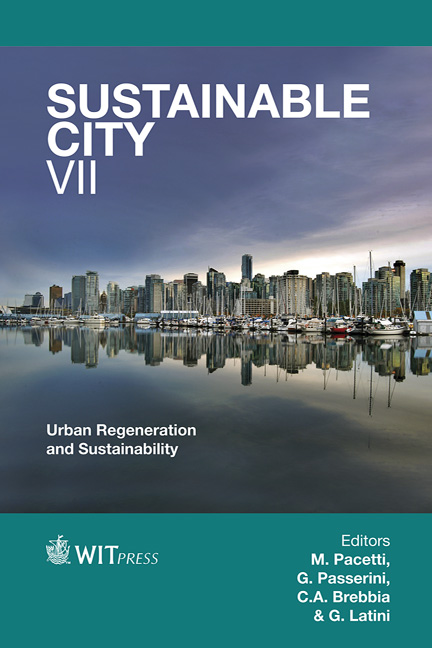Ad Hoc Planning Within Distrust And Conflict Situations: The Case Of Yaowarat, Bangkok, Thailand
Price
Free (open access)
Transaction
Volume
155
Pages
12
Page Range
799 - 810
Published
2012
Size
1,373 kb
Paper DOI
10.2495/SC120672
Copyright
WIT Press
Author(s)
S. Sapu
Abstract
Bangkok is facing massive developments because of new transportation infrastructure. In 2012 metro lines will be constructed and connected with existing lines in order to solve traffic problems. Comparing with the first and second phase, the third phase of planning is more than challenged because some routes are designed through historic areas such as Yaowarat or Chinatown. With regard to Chinatown in Thailand, it still plays an important role in economic and traditional activities. Moreover, this area has many magnificent buildings showing historic and cultural values, which are likely to be demolished in order to construct the new modern trade buildings and subway stations. Although the new mass-transit might lead to good quality of life and convenient journeys and economic development, economic pressure will also create community relocations and evictions particularly in historic areas. To successfully drive planning processes, the big question is how to foster trust between conflicts of people. Mechanisms including many stakeholders are required to deal with different demands and solutions. This paper shows the processes and guidelines of comprising methods which bridge the gap between land owners, investors, and communities. Keywords: ad hoc planning, distrust, transportation planning, re-mix mechanism, Bangkok. 1 Introduction Among the development pressures in Bangkok in this decade, many mega projects have been planned particularly for transportation, such as subways, skytrain, trains and roads. On the one hand, Bangkok will be raising the quality of
Keywords
ad hoc planning, distrust, transportation planning, re-mix mechanism, Bangkok.





